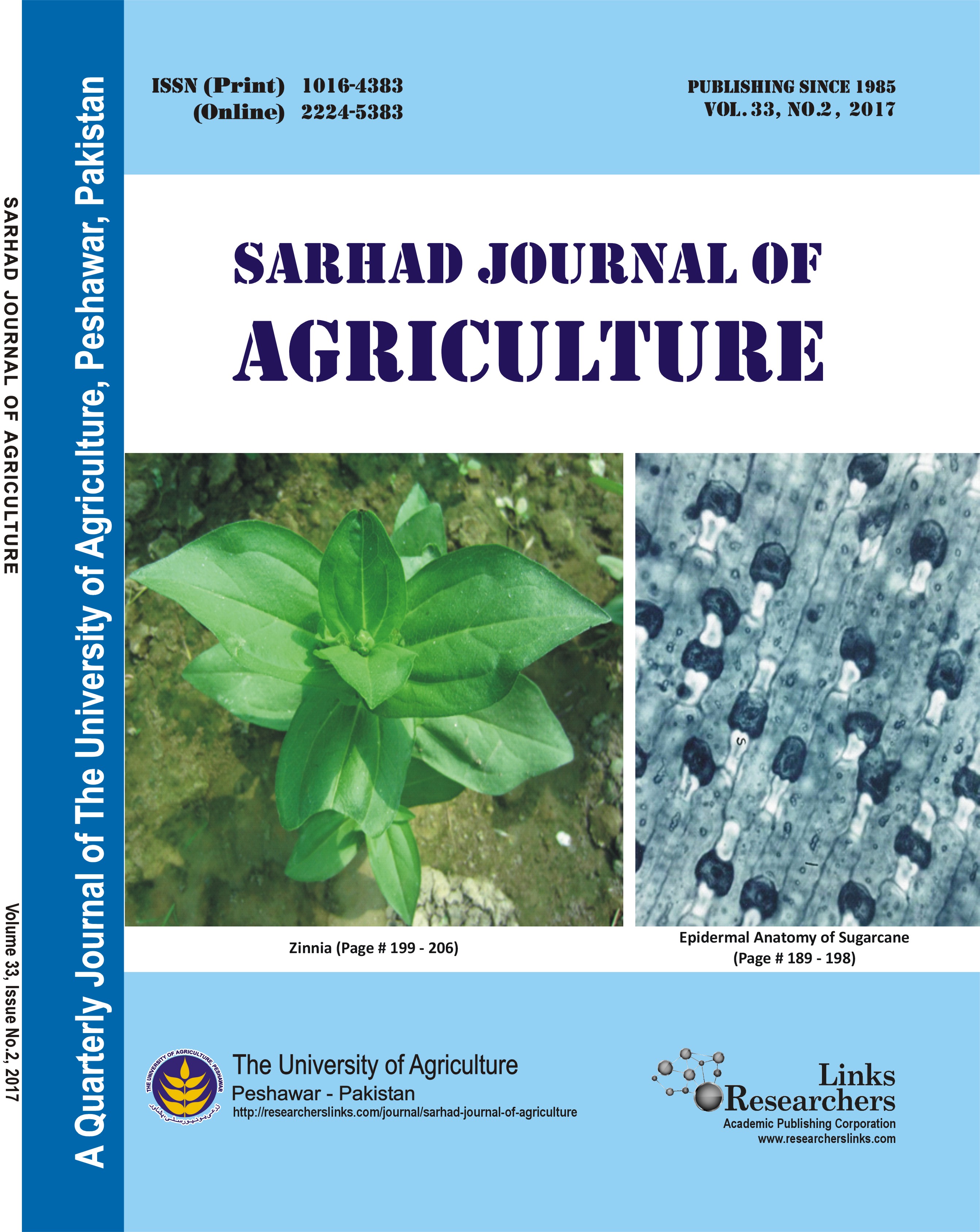Knowledge Gap of Improved Management Practices of Sugarcane Growers in Khyber Pakhtunkhwa, Pakistan
Knowledge Gap of Improved Management Practices of Sugarcane Growers in Khyber Pakhtunkhwa, Pakistan
Arshad Farooq* and Muhammad Zafarullah Khan
ABSTRACT
Cane crop production is a complex process dependent upon application and arrangement of various factors such as land, labor, finance and management practices etc. This article assessed the knowledge gap of improved cane management practices in Khyber Pakhtunkhwa-Pakistan. Sugarcane growers were selected randomly and Data were collected through interview schedule from 285 respondents in D.I. Khan and Mardan districts during sugarcane cropping season, 2018. Knowledge gap index was applied as a measuring tool. The empirical results indicated that no knowledge gap was found among farmers of D.I. Khan district regarding land preparation, sowing and harvesting time while in case of Mardan district no knowledge gap was observed in sowing and harvesting time. Farmers of D.I. Khan district had low knowledge gap (1 to 20%) in cane varieties, seed quantity, sowing practices, irrigation application, stoppage of irrigation before harvesting and cane cutting whereas farmers of district Mardan had low knowledge gap in length of cane setts, sowing practices, irrigation and cane cutting techniques. Medium knowledge gap (21 to 50%) was observed in length of cane setts, row to row spacing in farmers of D.I. Khan district while in farmers of Mardan district medium knowledge gap was observed in land preparation, improved cane varieties, row to row spacing and stoppage of irrigation before harvesting. High knowledge gap (above 50%) was revealed in cane setts treatment, depth of furrows in case of D.I. Khan district while high knowledge gap in cane setts treatment, depth of furrows and seed quantity per acre in farmers of Mardan district. The results further showed that majority (73.68%) farmers had medium (26.56%) knowledge gap while 13.33 percent farmers were found with low (13.46%) knowledge gap whereas 12.98 percent farmers revealed high knowledge gap (41.48%) in the study area. District wise findings indicated that farmers of D.I. Khan and Mardan districts had 21.87 percent and 32.17 percent knowledge gap, respectively. The overall knowledge gap in the current study was recorded as 26.75 percent. Variation in knowledge gap in sugarcane production technology among the sample farmers of both districts was due to their interests in cane farming, sugar mills support, mono and poly agricultural practices, lack of agricultural extension activities etc. Training and awareness programs through various types of mass media should be launched for reducing the knowledge gap and to equip the cane farmers with latest technology.
To share on other social networks, click on any share button. What are these?








